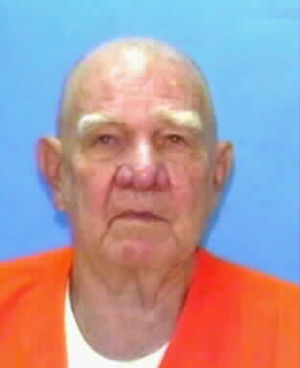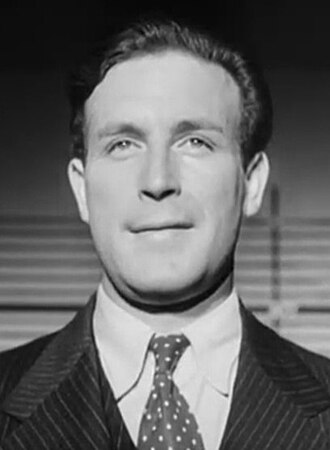Discover Your Roots
SIGN UPDiscover Your Roots
SIGN UPLawrence is a male given name of English origin, meaning "Laurel." It is an Anglicization of the French name Laurent, which is derived from the Latin name Laurentius or the Old Greek name Lavrenti. The name carries the symbolic meaning of honor, victory, and distinction, as the laurel is a symbol of triumph and achievement in ancient traditions. Common pet forms of Lawrence include Larry, Lawrie, and less commonly, Law. The name has been borne by notable individuals across various fields, including arts and entertainment, business, Christianity, education, politics, sports, and more. In addition to its historical significance, the name Lawrence has also been featured in fiction, with several fictional characters carrying the name in popular movies and television series.

Lawrence Henry Summers, born on November 30, 1954, is a prominent American economist and public figure. He has held several high-profile positions, including serving as the United States Secretary of the Treasury from 1999 to 2001 and as the director of the National Economic Council from 2009 to 2010. Additionally, he was the president of Harvard University from 2001 to 2006 and is currently the Charles W. Eliot University Professor at Harvard, as well as the director of the Mossavar-Rahmani Center for Business and Government at Harvard Kennedy School.Summers has an impressive academic background, having earned a Ph.D. from Harvard University and becoming one of the youngest tenured professors in the university's history at the age of 28. He has made significant contributions to various fields of economics and has been recognized with prestigious awards, including the John Bates Clark Medal in 1993.Summers has also been actively involved in public service, working as the Chief Economist of the World Bank from 1991 to 1993 and serving on the staff of the Council of Economic Advisers under President Reagan. He played a key role in shaping economic policies and responses to major financial crises during his tenure as a public official.In addition to his academic and public service endeavors, Summers has been involved in various other influential roles, including joining the board of directors of artificial general intelligence company OpenAI in November 2023 and working as a managing partner at

Lawrence Bernard "Larry" Singleton (1927–2001) was an American criminal known for his heinous acts. In 1978, he brutally raped and mutilated teenage hitchhiker Mary Vincent in California, leaving her for dead. Despite her injuries, Vincent miraculously survived and testified against Singleton, leading to his conviction. However, shockingly, Singleton was released after serving just eight years of his fourteen-year sentence. Following his release, he went on to murder Roxanne Hayes. Singleton's lenient sentence and subsequent criminal behavior sparked public outrage and led to the passage of California's "Singleton bill," which imposes a 25-years-to-life sentence for offenders who commit torture. Despite his release, Singleton continued to engage in criminal activities, including theft and assault, until his death in 2001. His actions and the subsequent legal responses continue to be a subject of controversy and public debate.Please note that the content provided contains sensitive and disturbing information.

Lawrence Sigmund Bittaker and Roy Lewis Norris, also known as the Tool Box Killers, were American serial killers and rapists who terrorized Southern California in 1979. Their heinous crimes included the kidnapping, rape, torture, and murder of five teenage girls. Bittaker was sentenced to death for five murders but died of natural causes on death row in 2019. Norris accepted a plea bargain, testified against Bittaker, and was sentenced to life imprisonment, passing away in 2020. Bittaker, born in Pittsburgh, had a troubled upbringing and a criminal record from a young age. Norris, born in Greeley, Colorado, endured a difficult childhood, including neglect and abuse. His troubled past led him to drop out of school and join the Navy. Bittaker and Norris became infamous as the "Tool Box Killers" due to the household tools they used to torture and murder their victims. Their disturbing actions and the brutal nature of their crimes have left a lasting impact on the community and law enforcement.

Lawrence James Tierney (March 15, 1919 – February 26, 2002) was a renowned American film and television actor known for his portrayals of mobsters and tough characters. He was born in Brooklyn, New York City and was the son of an Irish-American policeman. Tierney's journey to stardom began when he was discovered by an RKO talent scout and subsequently signed a film contract. His breakthrough role came in the 1945 film "Dillinger," where he portrayed the infamous bank robber John Dillinger. Tierney's intense performance in "Dillinger" propelled him to stardom and led to his promotion to star status at RKO. He continued to captivate audiences with his roles in film noirs such as "The Devil Thumbs a Ride" and "Born to Kill." Despite his success in portraying menacing characters, Tierney expressed his disdain for such roles, preferring more sympathetic characters. His career extended beyond RKO, with notable appearances in films like "Kill or Be Killed" and "The Hoodlum." Lawrence James Tierney's legacy as a formidable and versatile actor endures, leaving an indelible mark on the world of cinema.

Lawrence Livermore National Laboratory (LLNL) is a prestigious research and development center located in Livermore, California, United States. Established in 1952 as the University of California Radiation Laboratory, Livermore Branch, the laboratory is now sponsored by the United States Department of Energy and administered privately by Lawrence Livermore National Security, LLC. Co-founded by Edward Teller and Ernest Lawrence, the lab was established to rival the nuclear weapon design laboratory at Los Alamos and has since played a crucial role in national security. With an annual budget of approximately $2.7 billion and a staff of nearly 9,000 employees, LLNL is committed to ensuring the safety, security, and reliability of the nation's nuclear weapons. Additionally, the laboratory applies its expertise to prevent the proliferation and use of weapons of mass destruction, strengthen homeland security, address energy and environmental needs, conduct scientific research and outreach, and enhance economic competitiveness. LLNL's significant contributions have led to the naming of the synthetic chemical element livermorium in 2012, in recognition of its remarkable achievements.
All images displayed on this page are sourced from Wikipedia or Wikimedia Commons.We use these images under their respective Creative Commons or public domain licenses. Wherever applicable, author attributions and license information are provided. If you believe an image is used incorrectly or outside its license terms, please contact us so that we can review and correct the issue.